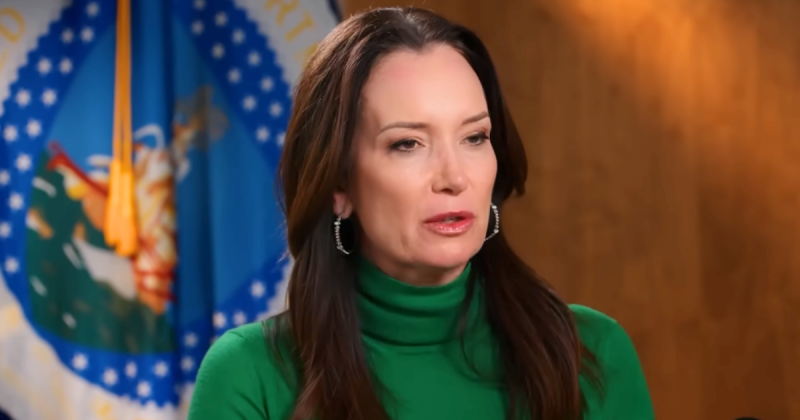The U.S. Department of Agriculture (USDA) has uncovered extensive irregularities in the Supplemental Nutrition Assistance Program (SNAP), including cases where deceased individuals continued receiving benefits and instances of people collecting assistance multiple times under the same identity.
USDA Secretary Brooke Rollins disclosed the findings during an interview with Fox News’ Laura Ingraham, highlighting the scope and urgency of the issue.
Rollins reported that 29 states provided SNAP enrollment data for analysis, revealing thousands of deceased recipients still on the rolls and hundreds of thousands appearing to collect benefits under duplicate names.
She stressed that most recipients in these states were able-bodied adults not responsible for children or elderly family members.
“These individuals can work but choose not to, yet they continue to receive significant taxpayer-funded benefits,” Rollins said.
SNAP traces its roots to 1939, when the first Food Stamp Program was piloted to help Americans purchase food during the Great Depression.
The program became permanent under the Food Stamp Act of 1964, with legislative updates in 1977 eliminating purchase requirements and establishing uniform eligibility standards.
Today, SNAP serves over 40 million Americans monthly, with federal spending totaling nearly $100 billion annually.
Despite widespread compliance from two-thirds of states, 21 refused to share detailed data, prompting legal challenges.
Several states challenged the USDA’s request for detailed SNAP data, citing privacy concerns, according to the Associated Press.
Secretary Rollins questioned the motives behind these challenges, asserting that taxpayers deserve accountability and transparency in federal programs.
The USDA’s recent actions follow prior enforcement under the Trump administration, which removed approximately 700,000 ineligible recipients and led to 118 arrests.
Rollins noted that SNAP enrollment has increased by nearly 40 percent in recent years, emphasizing the need for ongoing oversight and reform.
A high-profile case in Cleveland illustrated how SNAP benefits can be misused.
Moneywise reports that authorities uncovered a scheme in which benefits were traded for cash, clothing and appliances.
Federal agents seized $100,000 in illicit transactions over an 11-month investigation.
Rup Chettri, owner of Sagarmatha Home Decor LLC, faces multiple felony charges including illegal use of SNAP benefits, money laundering and telecommunications fraud.
Officials stressed that even small-scale fraud diverts resources from the millions who legitimately rely on SNAP.
Complicating matters, SNAP operations were disrupted during the government shutdown.
Courts ordered the USDA to use its $4.65 billion contingency fund to maintain benefit payments.
Initially, the department planned a 50 percent reduction, later scaled back to 35 percent, before a federal judge mandated full restoration.
Administrative challenges persist in certain states.
According to Moneywise, as highlighted by CNN, Pennsylvania reported that reprogramming its systems to comply with USDA requirements would require over 10,000 hours of labor, demonstrating the logistical hurdles of managing SNAP at scale.
Rollins has emphasized that her crackdown aims to reduce fraud while ensuring lawful recipients continue to receive aid efficiently.
By exposing weaknesses and enforcing stricter oversight, the USDA seeks to protect taxpayer resources and safeguard SNAP for those who genuinely need food assistance.
Secretary Rollins confirmed that corrective measures are imminent and stressed that preventing misuse of public funds remains a top priority.
WATCH:

